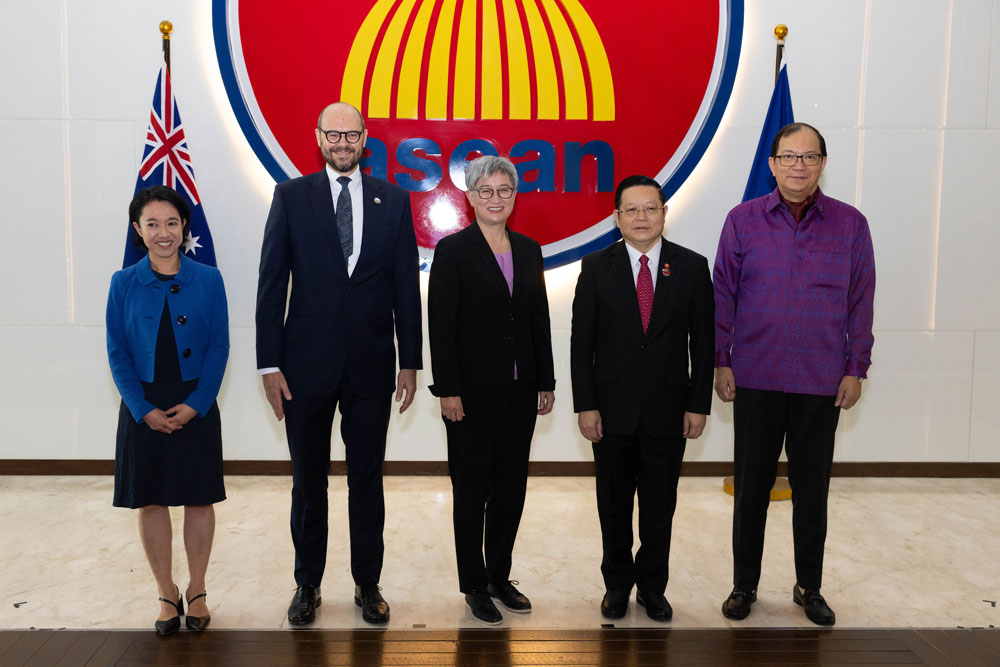New Trade Dynamics Emerge in Southeast Asia
The recent ASEAN-Gulf Cooperation Council (GCC)-China Summit has set the stage for a seismic shift in global trade. Southeast Asia, often caught in the crossfire of international trade disputes, now finds itself at the center of a web of new multilateral alliances. The stakes are high as leading economies like the European Union, China, and the GCC vie for influence in a region still reeling from the fallout of previous U.S. tariff policies.
Trade Wars Fuel Economic Uncertainty
As reported by Carnegie Endowment, Southeast Asian nations are grappling with some of the highest reciprocal tariff rates that emerged under the Trump administration. These punitive measures have not only strained relationships but have also prompted countries to seek diversification in their trade partnerships. The urgency for these nations to explore new avenues is palpable, as they risk losing billions to more aggressive trade players.

Southeast Asia | Australian Government Department of Foreign ...
China and GCC Make Strategic Moves
The recent conclusion of the China-ASEAN Free Trade Area 3.0 upgrade negotiations signifies a pivotal moment in regional trade policy. As stated in remarks by Chinese Premier Li Qiang, this development is aimed at strengthening economic ties and enhancing trade volume across member states. The GCC is not far behind, actively pursuing its own agreements with Southeast Asian countries to ensure its role as a dominant player in the region.
Digitalization as a Trade Lever
In a world increasingly driven by technology, Southeast Asian nations are leveraging digitalization to boost regional trade. The integration of digital platforms is crucial for enhancing efficiency and competitiveness, but it also presents challenges. As countries navigate these new waters, they must ensure that their digital infrastructure is equitable and accessible to all citizens, avoiding the pitfalls of digital inequality.

Vietnam picks ex-state security official Chinh as new PM | Reuters
Implications for Local Economies
The rapid development of these new trade alliances could have dire consequences for local economies that are already vulnerable. Without strategic planning, Southeast Asian nations may find themselves at the mercy of larger economic powers that prioritize their own interests over the welfare of local communities. The potential for job losses and increased economic disparity looms large, necessitating a robust response from regional leaders.


![[Video] Heavy clashes and gunfire reported in Baghdad, Iraq](/_next/image?url=%2Fapi%2Fimage%2Fthumbnails%2Fthumbnail-1768342239932-848qsh-thumbnail.jpg&w=3840&q=75)




![[Video] Gunfire between Iraqi security forces and Sadr militias in Baghdad](/_next/image?url=%2Fapi%2Fimage%2Fthumbnails%2Fthumbnail-1768343508874-4redb-thumbnail.jpg&w=3840&q=75)
